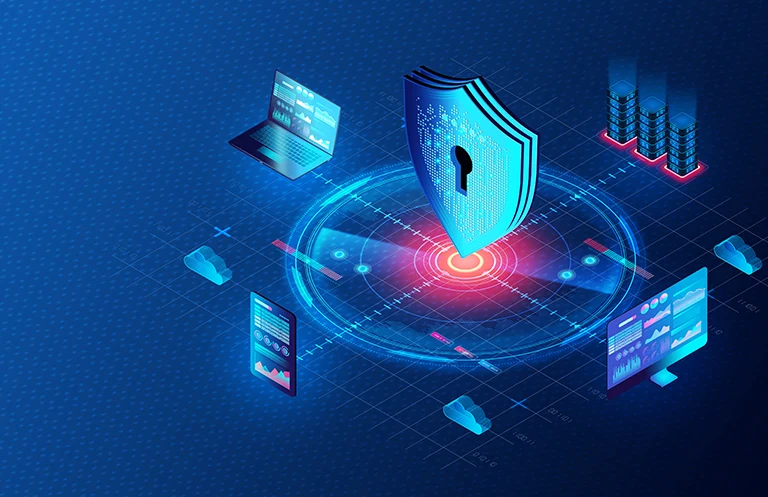Product-based companies in consumer electronics, wearable technologies or connected devices are often under pressure to deliver high quality products with better user experience, at optimal costs, and within shrinking development timelines, even as they contend with stiff competition. This combined objective can only be achieved by leveraging a well-designed QA and testing ecosystem which can support proper infrastructure, capabilities and processes.
At some stage of development, product and engineering companies must seek the participation of QA practice teams to gain desired competitive advantage in terms of features and functionalities. Take the example of just one such functionality — extended battery life which is one of the key differentiators of smartphone and smartwatch device makers. In order to ensure the best quality, compliance and lowest return rates when the final product is ready to be launched in the market, the manufacturer has to complete rigorous QA testing covering all possible scenarios for consumers on-the-move so that they can use the device longer and as per expectation.
In actual fact, the emergence of connected objects is fundamentally changing the way QA testing should be addressed in a product development scenario. Based on our various projects with connected solution players at eInfochips, we have gathered a handy list of product testing priorities which yields best results. They are as follows:
1. Providing connected user experience
Every product-based organization today is equipped with well-defined quality processes that ensure the highest levels of conformance to product specifications. But with the world going increasingly digital, very few have changed their processes to focus solely on user experience. Providing seamless and high precision connected user experience requires a robust quality assurance process. In the connected world, device or product testing varies at each stage of the product lifecycle and affects multiple stakeholders in the value chain to overcome various product risks. For example, the wearable tech industry usually focuses more on the design quotient and UI/UX of the product while for the home automation industry, connectivity and accuracy might be of greater interest.
2. Complex nature of testing
The nature of device testing has fundamentally changed now because modern day gadgets encompass both hardware with embedded software. This means completely new functionality and UI/UX scenarios are needed to test the small screen size of 1.3-2 inch, as in case of wearables as compared to testing on mobile phones or tablets. Device manufacturers or OEMs can test the hardware, and application developers will test the software, but the real time behavior of the device can only be tested when they talk with the mobile application under multiple usage scenarios. This also includes algorithm testing and data security testing, when leveraging cloud infrastructure. Let us not forget that nonfunctional parameters like performance testing, security testing and stress testing now serve as unique differentiators for a product.
3. Changing meaning of test metrics
Standard test metrics like defect removal efficiency, test case effectiveness and test coverage have taken a whole new meaning. A device needs to be tested from various perspectives such as technical, user and compatibility under different environments. Hence, the use cases that have to be tested need to be more elaborate. For example, for a typical Android mobile application testing, developers test for as many as 300 Android devices alone on average. Also, for each device, users have their own choice. Hence, testing on multiple variants becomes necessary. Test coverage for multiple environments, platforms, devices, APIs and the permutations and combinations of each has become the need of the hour.
4. Continuous improvement while testing
Companies are using social media to incorporate feedback into developing new product features and improving their product continuously. Constant insights into the risks and limitations of a product are needed. It calls for rework in product development and testing becomes costly. Also, these processes have to be managed globally for large companies to ensure collaboration at an enterprise level. Product managers with the traditional V model of validation and verification will only give one time improvement. Hence continuous improvement culture of Testops and quality engineering principles are needed as part of mature product QA function.
5. Comprehensive test strategy
Gone are the days when one suite of software or application testing created could be reused for all others. Companies developing devices and applications are generally not the best ones to do in-house testing. Testing on actual devices instead of emulators has become necessary which drives the trend to choose an independent testing vendor to save costs. No one-size-fits-all strategy works anymore for product testing. Testing for device and user touchpoints varies across industries and requires different skill sets and testing approach. Hence, it also affects QA team structure and governance model. Silo approach to testing will no longer work and an exhaustive end to end suite of QA capabilities are needed right from product testing strategy, test management, test automation, test cloud infrastructure and test execution.
At eInfochips, we provide services and solutions to address all the above priorities through our comprehensive QA and testing offerings. We have more than two decades of experience in QA and testing with expertise in risk-based QA approach and integrated product testing. Recently, we came with EzTest, a single, all-inclusive automation solution in enterprise QA practice.












